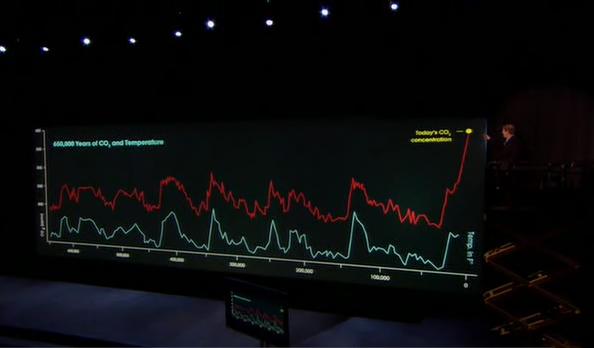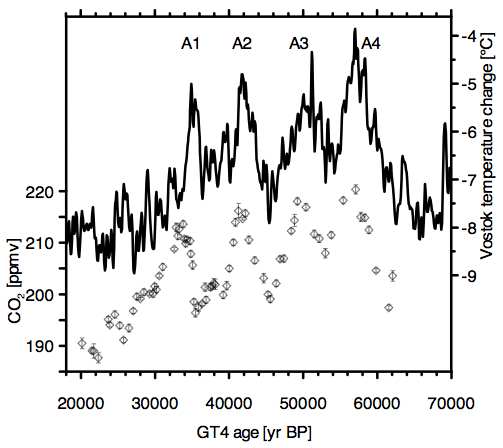Arrowwind09
Standing at the Portal
- Joined
- Oct 16, 2007
https://tinyurl.com/26dped
The deceit behind global warming
By Christopher Booker and Richard North
No one can deny that in recent years the need to "save the
planet" from global warming has become one of the most pervasive issues of
our time. As Tony Blair's chief scientific adviser, Sir David King, claimed
in 2004, it poses "a far greater threat to the world than international
terrorism", warning that by the end of this century the only habitable
continent left will be Antarctica.
Inevitably, many people have been bemused by this somewhat
one-sided debate, imagining that if so many experts are agreed, then there
must be something in it. But if we set the story of how this fear was
promoted in the context of other scares before it, the parallels which
emerge might leave any honest believer in global warming feeling
uncomfortable.
The story of how the panic over climate change was pushed to the
top of the international agenda falls into five main stages. Stage one came
in the 1970s when many scientists expressed alarm over what they saw as a
disastrous change in the earth's climate. Their fear was not of warming but
global cooling, of "a new Ice Age".
For three decades, after a sharp rise in the interwar years up
to 1940, global temperatures had been falling. The one thing certain about
climate is that it is always changing. Since we began to emerge from the
last Ice Age 20,000 years ago, temperatures have been through significant
swings several times. The hottest period occurred around 8,000 years ago and
was followed by a long cooling. Then came what is known as the "Roman
Warming", coinciding with the Roman empire. Three centuries of cooling in
the Dark Ages were followed by the "Mediaeval Warming", when the evidence
agrees the world was hotter than today.
Around 1300 began "the Little Ice Age", that did not end until
200 years ago, when we entered what is known as the "Modern Warming". But
even this has been chequered by colder periods, such as the "Little Cooling"
between 1940 and 1975. Then, in the late 1970s, the world began warming
again.
A scare is often set off - as we show in our book with other
examples - when two things are observed together and scientists suggest one
must have been caused by the other. In this case, thanks to readings
commissioned by Dr Roger Revelle, a distinguished American oceanographer, it
was observed that since the late 1950s levels of carbon dioxide in the
earth's atmosphere had been rising. Perhaps it was this increase that was
causing the new warming in the 1980s?
Stage two of the story began in 1988 when, with remarkable
speed, the global warming story was elevated into a ruling orthodoxy, partly
due to hearings in Washington chaired by a youngish senator, Al Gore, who
had studied under Dr Revelle in the 1960s.
But more importantly global warming hit centre stage because in
1988 the UN set up its Intergovernmental Panel on Climate Change (the IPCC).
Through a series of reports, the IPCC was to advance its cause in a rather
unusual fashion. First it would commission as many as 1,500 experts to
produce a huge scientific report, which might include all sorts of doubts
and reservations. But this was to be prefaced by a Summary for Policymakers,
drafted in con-sult-ation with governments and officials - essentially a
political document - in which most of the caveats contained in the experts'
report would not appear.
This contradiction was obvious in the first report in 1991,
which led to the Rio conference on climate change in 1992. The second report
in 1996 gave particular prominence to a study by an obscure US government
scientist claiming that the evidence for a connection between global warming
and rising CO2 levels was now firmly established. This study came under
heavy fire from various leading climate experts for the way it manipulated
the evidence. But this was not allowed to stand in the way of the claim that
there was now complete scientific consensus behind the CO2 thesis, and the
Summary for Policy-makers, heavily influenced from behind the scenes by Al
Gore, by this time US Vice-President, paved the way in 1997 for the famous
Kyoto Protocol.
The deceit behind global warming
By Christopher Booker and Richard North
No one can deny that in recent years the need to "save the
planet" from global warming has become one of the most pervasive issues of
our time. As Tony Blair's chief scientific adviser, Sir David King, claimed
in 2004, it poses "a far greater threat to the world than international
terrorism", warning that by the end of this century the only habitable
continent left will be Antarctica.
Inevitably, many people have been bemused by this somewhat
one-sided debate, imagining that if so many experts are agreed, then there
must be something in it. But if we set the story of how this fear was
promoted in the context of other scares before it, the parallels which
emerge might leave any honest believer in global warming feeling
uncomfortable.
The story of how the panic over climate change was pushed to the
top of the international agenda falls into five main stages. Stage one came
in the 1970s when many scientists expressed alarm over what they saw as a
disastrous change in the earth's climate. Their fear was not of warming but
global cooling, of "a new Ice Age".
For three decades, after a sharp rise in the interwar years up
to 1940, global temperatures had been falling. The one thing certain about
climate is that it is always changing. Since we began to emerge from the
last Ice Age 20,000 years ago, temperatures have been through significant
swings several times. The hottest period occurred around 8,000 years ago and
was followed by a long cooling. Then came what is known as the "Roman
Warming", coinciding with the Roman empire. Three centuries of cooling in
the Dark Ages were followed by the "Mediaeval Warming", when the evidence
agrees the world was hotter than today.
Around 1300 began "the Little Ice Age", that did not end until
200 years ago, when we entered what is known as the "Modern Warming". But
even this has been chequered by colder periods, such as the "Little Cooling"
between 1940 and 1975. Then, in the late 1970s, the world began warming
again.
A scare is often set off - as we show in our book with other
examples - when two things are observed together and scientists suggest one
must have been caused by the other. In this case, thanks to readings
commissioned by Dr Roger Revelle, a distinguished American oceanographer, it
was observed that since the late 1950s levels of carbon dioxide in the
earth's atmosphere had been rising. Perhaps it was this increase that was
causing the new warming in the 1980s?
Stage two of the story began in 1988 when, with remarkable
speed, the global warming story was elevated into a ruling orthodoxy, partly
due to hearings in Washington chaired by a youngish senator, Al Gore, who
had studied under Dr Revelle in the 1960s.
But more importantly global warming hit centre stage because in
1988 the UN set up its Intergovernmental Panel on Climate Change (the IPCC).
Through a series of reports, the IPCC was to advance its cause in a rather
unusual fashion. First it would commission as many as 1,500 experts to
produce a huge scientific report, which might include all sorts of doubts
and reservations. But this was to be prefaced by a Summary for Policymakers,
drafted in con-sult-ation with governments and officials - essentially a
political document - in which most of the caveats contained in the experts'
report would not appear.
This contradiction was obvious in the first report in 1991,
which led to the Rio conference on climate change in 1992. The second report
in 1996 gave particular prominence to a study by an obscure US government
scientist claiming that the evidence for a connection between global warming
and rising CO2 levels was now firmly established. This study came under
heavy fire from various leading climate experts for the way it manipulated
the evidence. But this was not allowed to stand in the way of the claim that
there was now complete scientific consensus behind the CO2 thesis, and the
Summary for Policy-makers, heavily influenced from behind the scenes by Al
Gore, by this time US Vice-President, paved the way in 1997 for the famous
Kyoto Protocol.





